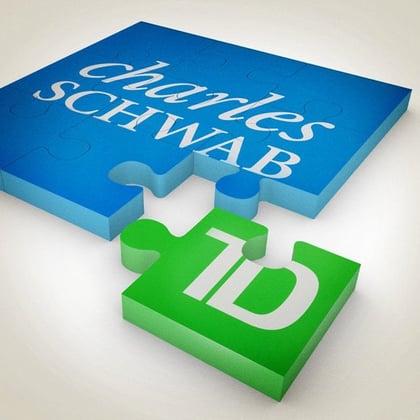What You Need to Know
- The accounts move to the Charles Schwab platform over the Labor Day weekend.
- The conversion won’t be easy, so advisors need to pay attention to the small details.
- Advisor Transition Services' Grier Rubeling shares three tax-related tips to help advisors during the transition.
With just a few days to go before TD Ameritrade advisors and their clients’ accounts make the hotly anticipated move to the Charles Schwab platform, Grier Rubeling — founder, owner and operator of consulting firm Advisor Transition Services — highlighted three tax-related tips to help advisors manage the conversion over the Labor Day weekend.
Rubeling posted a total of nine tips about taxes and other issues for TD advisors affected by the conversion via a series of LinkedIn posts based on what she’d read from information that Schwab provided to TD advisors. She then compiled them in a guest post for Kitces.com.
“From the feedback that I have gotten with these tips from advisors — and I’ve gotten a lot of feedback — people have learned more from these tips than they learned from anything that they got from Schwab just because of the overwhelming nature of the subject matter,” she told ThinkAdvisor in an online interview on Wednesday.
The tips were based on details Rubeling said she read about in about 150 pages of Schwab information. She could have added more tips, but the nine she selected were among the most significant ones, she added.
Tax Tip 1: IRA Contributions and Distributions
During an online interview on Wednesday, Rubeling told ThinkAdvisor: “Any contributions and distributions that were made prior to this weekend, prior to the conversion date, they are not going to [be reflected] on the Schwab system.”
TD clients “will still get a tax document from TD Ameritrade that shows any contributions or distributions that were made for the year 2023, but it’s not as though there’s going to be a consolidated place on the Schwab system that shows what your 2023 contributions and distributions were,” she warned.
She explained: “They will only show any contributions or distributions that were made post-conversion 2023.
“So, if you have monthly contributions coming into retirement accounts or monthly contributions going out of retirement accounts, then … 75% of those are going to be shown on a TD Ameritrade tax document for 2023, and the other 25% of them are going to be shown on a Schwab tax document for 2023, and there’s nowhere in the system that you can go and see them consolidated.”
That means it’s basically a manual process but “nothing’s really going to change,” she said, explaining: “Those recurring contributions and distributions will still be set up at Schwab and still happen. But it’s not like you’re going to be able to go into the system on December 31, 2023 and say, ‘okay, how much money was contributed for the year 2023 to this IRA?”
Advisors will instead “have to pull the report from TD Ameritrade and look at the Schwab system and add the two numbers together,” she added.
The tax documents “will all come from Schwab [and] everything will be reflected on the Schwab system,” she stressed. “However, if you still need historical data, you’ll still need to reference the TD Ameritrade reports for the historical data.”
Therefore, Rubeling suggested “pulling now from TD Ameritrade the reports on any IRA contributions and distributions made in the year 2023 and any previous years.” That is because, “if for some reason you want that information, like sometimes people will pull a 2022 report just to compare 2022 with 2023 to make sure that they’re not missing if somebody contributed to their IRA,” she noted.
Advisors may call clients and ask whether they want to max out their contributions for this year, she pointed out. To do that, however, it is “important to pull that information because you won’t have access to it anymore at Schwab,” she said.
She conceded, however, that it’s “one of those things where it may not affect your business at all if you don’t do recurring contributions or distributions or if you don’t have clients who are making last minute contributions to their IRAs right before tax deadlines.”
“But, if you do, then it could significantly affect it because you could miss a bunch of contributions because you didn’t even realize they didn’t make them yet,” she added.
On Kitces.com, she pointed out: “Manual calculations will need to be done to add the pre-conversion amounts to the post-conversion amounts to get the total amounts. Two tax documents will be issued, one from each institution.”








 August 30, 2023 at 06:34 PM
August 30, 2023 at 06:34 PM












 Copyright © 2024 ALM Global, LLC. All Rights Reserved.
Copyright © 2024 ALM Global, LLC. All Rights Reserved.